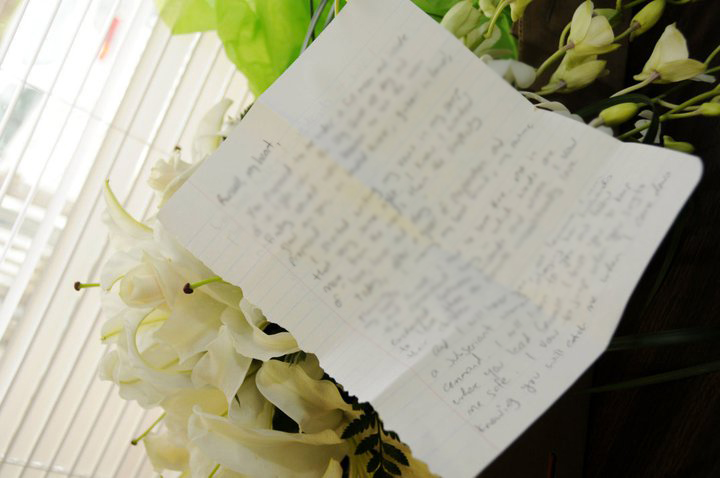How to tell a good poem from a bad poem

You know bad poetry
Poetry often makes even poets cringe because everyone has seen and heard bad poetry so often that the form itself becomes taboo, and people are prejudiced against it. What ultimately makes a poem bad is the failure of the writer to convey that deep and moving experience to his reader that led him to write the poem.
“Poetry is the spontaneous overflow of powerful feelings: it takes its origin from emotion recollected in tranquility.”
– William Wordsworth (who better to quote about the worth of words!)
A poet’s profession is to paint a picture with words, wasting none. A novelist tells a story and can from time to time lose the reader in the small details; poetry is all detail. The poor poems pull the reader from the picture and leave him hearing a tale rather than being dragged into it.
Poor poems bleed all over the reader rather that cut him, exposing his raw emotions about a similar incident. Poor poems relent when they should eviscerate.
The problem with poetry
The problem with poetry is that it comes from a point of pain that often the poet is still working through. Poetry can soothe the savage beast of experience and yield wisdom, but for wisdom to grow the poet must revise like a hermit crab that trades a smaller shell for its larger one.
I’ve written and even published my poetry, but I don’t profess to be an expert at the craft. As Plato said, “At the touch of love, every becomes a poet,” and so most of us try our hands at poetry as teenagers moved passionately by the heartaches that truly become mundane in adulthood. Clutching the inspiration and practicing the craft of poetry to precision is the process by which poets unleash masterpieces. The rest of us have our hopes raised, our hearts broken and our poems buried. We get over those intense emotions and don’t look back on our poetry. When we do, we choose to either ignore our feeble attempts at conveying a concise moment in time or we choose to ignite our inspiration through rewriting.
You know good poetry
Simply put, good poems stick with you. Whether a horrid image that shakes your core values or a powerful play on words, good poetry leaves you with a feeling after your eyes leave the page. Your ears reverberate after the narration finishes.
One of my favorite poets is Ani DiFranco, and I’ve featured her poetry previously in Target Audience Magazine. Again, I will share a verse from “School Night” because every time I read it, however half-assed I read it, I shiver. If you want the musical accompaniment click here.
“What of the mother
whose house is in flames
and both of her children
are in their beds crying
and she loves them both
with the whole of her heart
but she knows she can only
carry one at a time?
She’s choking on the smoke
of unthinkable choices;
she is haunted by the voices
of so many desires.
She’s bent over from the business
of begging forgiveness,
while frantically running around
putting out fires.”
Seriously. Can you not feel the torment of choking back the smoke while your house gets engulfed in flames, but your TWO babies need to be rescued? DiFranco doesn’t say “The mother can’t breath well because the house is filled with smoke.” Difranco writes, “She’s choking on the smoke of unthinkable choices” and the reader instantly knows that the mother is trying to decide WHICH child to save. I know, you and every mother, father, aunt and uncle reading this is swearing to yourself that you would carry them both out, summoning some strength that you would have in that moment alone, but I think back to this book I read in middle school. I can’t remember the the title though it’s on the tip of my tongue. Anyway, the mother is fleeing oppression and literally walking across country with many others. She carried her babies as long as she could and eventually put them down. I’m sure the book was based on fact. The image stung me so sharply and hurt so deeply (even before I had babies of my own) that I just had to stop reading. That is what good poetry does.
Keep writing
Many of my friends write and publish poetry. I encourage this and I read along, capturing the moments that cut rather than bleed. My advice for writing poetry well is to look at the moment that brought you pain and instead of afflicting your readers with it, while you work your way through to some sort of wisdom, help your readers grow. Wait for the wisdom, then write the poem from the heart, where you slash your reader with the same pain you experienced or inspire them with the same intensity with which you were inspired. Take them through the journey.
Share your thoughts on recognizing good poems, and share your experience with writing about emotional journeys. If you plan to publish a book of poetry and want it professionally edited, or if you believe your work is worthy enough of feature in Target Audience Magazine, email me at Ellen [at] EllenEldridge.com. Beg enough and I’ll share some of my poetry with you.
